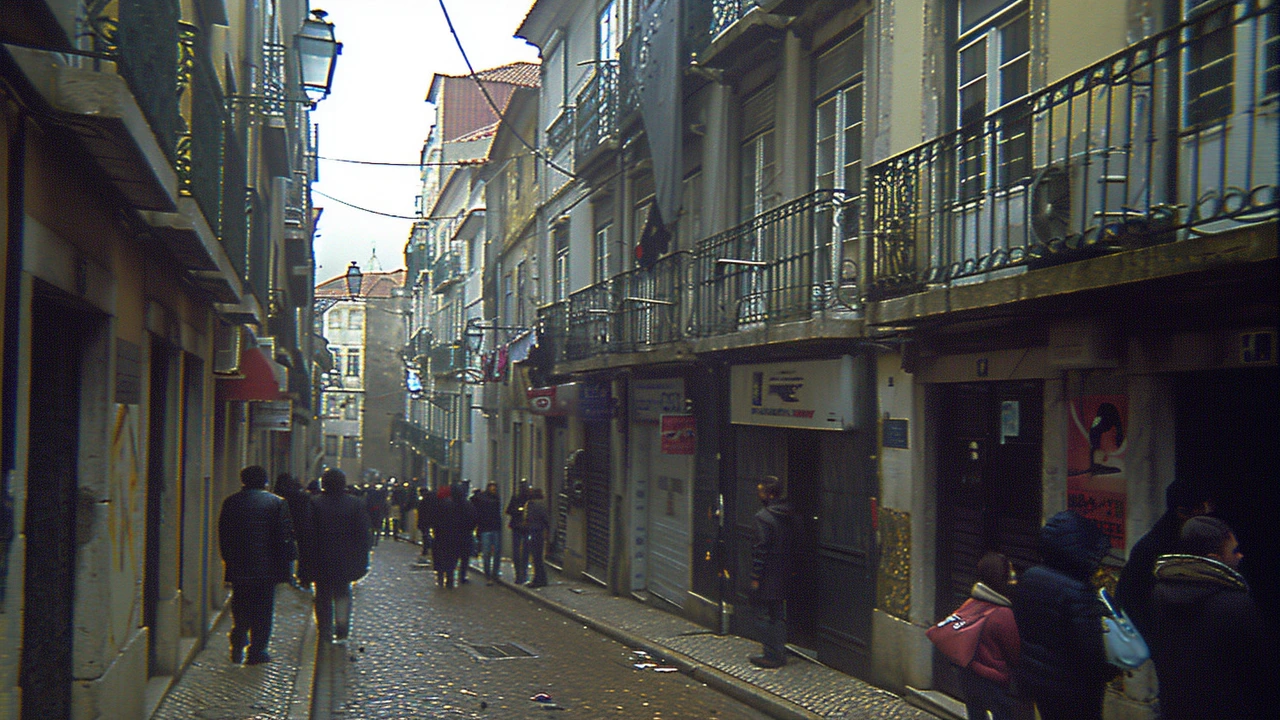Portugal Takes Action on Migration Policy Amid Housing Crisis
Portugal is addressing its significant housing crisis and related migration issues through the implementation of more stringent policies and revisions to its Golden Visa scheme. As of 2023, the nation has seen a substantial 33% increase in its migrant population. With roughly 800,000 to one million migrants now residing in the country, these individuals constitute about 10% of Portugal's total populace.
The minority government, led by Luís Montenegro, has outlined a new migration plan anchored on four essential axes aimed at ensuring better living conditions for all migrants. This comprehensive strategy encompasses stricter border controls, new visa application requirements, and a fully dedicated task force to expedite the processing of visa applications.
Previously, migrants could enter Portugal seeking employment and apply for work visas within the country. However, one of the notable shifts in policy mandates that foreigners seeking job opportunities in Portugal must now apply for a work visa at a Portuguese consulate before they even arrive in the country. This change is designed to better regulate the influx of migrants and monitor employment conditions from the outset.
Another focal point of the government's plan involves enhancing border controls to better manage who enters the country. By tightening these controls, Portugal aims to ensure a more orderly and secure process for integrating new arrivals into its society.
The Task Force for Visa Processing
In an effort to streamline and enhance the efficiency of visa processing, Portugal is establishing a specialized task force. This dedicated team will be responsible for handling visa applications, significantly reducing the waiting time for applicants. This move is mainly targeted at providing more reliable and rapid services to migrants, thereby improving their initial settlement experience.
Revamping the Golden Visa Scheme
Launched in 2012, the Golden Visa scheme has so far attracted significant foreign investment, generating an impressive 7.3 billion euros. This program has facilitated the influx of wealthy foreigners who wish to invest in Portugal, contributing greatly to the country's economy. Nevertheless, in light of the ongoing housing crisis, the government has recognized the need to adapt the scheme to current socio-economic realities.
The proposed modifications to the Golden Visa program will channel wealthy investors' funds towards broader and more diverse projects. These include investment in funds, cultural or research initiatives, and most notably, affordable housing projects. By redirecting foreign investment into the residential sector, the government aims to increase the availability of both affordable housing and overall residential buildings. This adjustment has been termed the 'solidarity visa' due to its focus on addressing mutual community needs.
Addressing the Housing Crisis
Portugal is grappling with a severe housing shortage, a predicament that has been exacerbated by the rising number of migrants moving to the country. The influx has placed significant pressure on the housing market, driving up prices and making it more difficult for both local residents and migrants to secure affordable housing. The modifications to the Golden Visa scheme are designed to alleviate these issues by increasing the stock of available, affordable residential properties.
The government's ambition is to create a more integrated and equitable society, where both migrants and longtime residents can benefit from improved housing options. By ensuring that foreign investments are channeled into projects that directly address housing shortages, the administration hopes to mitigate some of the pressing issues facing the country's real estate market.
A New Vision for Migration
A key advocate of the new migration plan, Antonio Leitao Amaro, the Minister of the Presidency, underscored the need for regulated immigration to foster a better future for Portugal. He emphasized that the government’s vision for migration is one that is orderly, compassionate, and sustainable. Regulated immigration, he argued, will not only help to manage the population effectively but also contribute to the nation's economic and cultural vibrancy.
Through these concerted efforts aimed at updating Portugal's migration policy and refining the Golden Visa scheme, the government aims to create a more balanced and fair society. These measures are expected to enhance the quality of life for all residents, ensuring that Portugal remains a welcoming destination while effectively addressing its current housing challenges.
As Portugal navigates through these complex issues, it is clear that the decision-makers are focusing on long-term solutions. The new policies reflect a strategic shift towards sustainable growth and integration, balancing the country's economic needs with the well-being of its populace.

